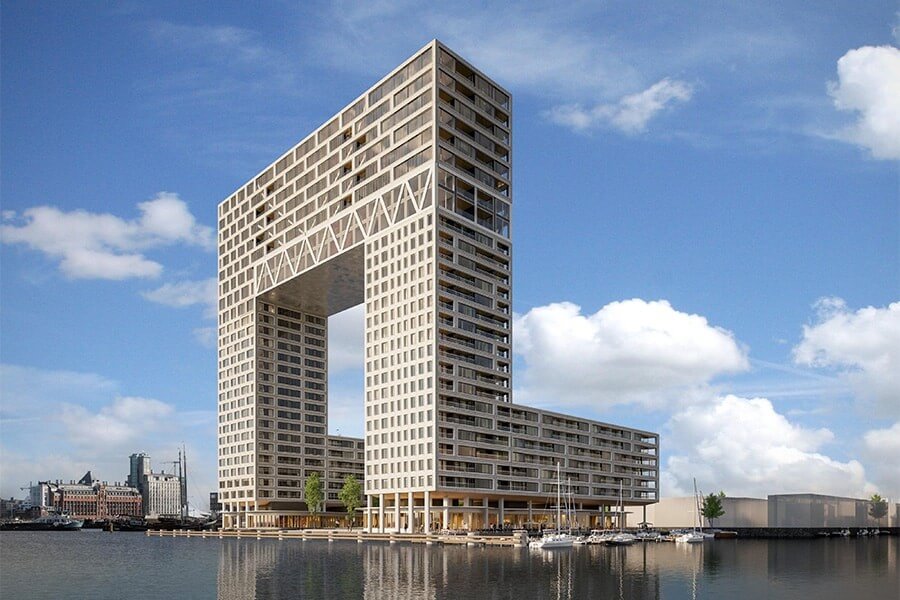The Competition Corner: Latest updates (week 19-22)
In this blog we highlight the latest developments in competition law.
Case law
Amsterdam Court of Appeal intends to refer preliminary questions to the European Court of Justice regarding the interpretation of Article 8(1) of Regulation Brussels I-bis
Amsterdam Court of Appeal 25 April, ECLI:NL:GHAMS:2023:961 (published on 5 May 2023)
In 2014 the European Commission (Commission) found that power cable producers and suppliers had been involved in a cartel. Claimants based in the Gulf States brought claims against the cartelists (defendants), some of which are established in the EU, before the District Court of Amsterdam. Claimants argued that they had suffered significant damage due to the cartel. The District Court found that it did not have jurisdiction over the claims against non-Dutch defendants. Claimants appealed this judgment. The Amsterdam Court of Appeal must determine ex officio whether the Dutch court has jurisdiction to hear the claims under Article 8(1) of Regulation Brussels I-bis. The Amsterdam Court of Appeal intends to refer preliminary questions to the ECJ (i) on the application of the criterion of a ‘close connection’ and (ii) whether the assignability of the claims against the anchor defendant is relevant in the context of the jurisdiction assessment.
General Court Annuls Commission’s Decisions on State Aid to Airlines
General Court 10 May 2023, ECLI:EU:T:2023:247 (Ryanair v Commission); General Court 10 May 2023, Joined Cases T-34/21 and T-87/21, ECLI:EU:T:2023:248 (Ryanair v Commission); General Court 24 May 2023, Case T‑268/21, ECLI:EU:T:2023:279 (Ryanair DAC v Commission)
In a recent series of court decisions, the General Court has annulled several rulings by the European Commission concerning state aid granted to airlines in the context of the COVID-19 pandemic. The cases were brought by Ryanair in relation to the Commission’s approval of aid measures to Lufthansa, SAS, and eligible airlines in Italy.
In Joined Cases T-34/21, T-87/21, the General Court upheld Ryanair’s actions against the Commission’s decision approving Germany’s €6 billion recapitalization of Lufthansa. The Court found that the Commission had violated the provisions of the Temporary Framework for State aid measures during the pandemic by failing to introduce a step-up mechanism for increasing the remuneration of the German State. The same reasoning was given by the Court in Case T-238/21, in relation to the recapitalization of SAS. In addition, in Case T-268/21 Ryanair successfully claimed that, in approving the compensation aid granted by Italy to eligible airlines, the Commission failed to state reasons.
Thus, the General Court’s recent decisions highlight its scrutiny of the European Commission’s approvals of state aid measures for airlines during the COVID-19 pandemic. In each case, the Court found flaws in the decision-making process, including as concerns eligibility, market power, the absence of step-up mechanisms, and inadequate reasoning.
Court of Appeal rejects claims for deletion of ‘illegally’ obtained data in ACM investigation
The Hague Court of Appeal 24 January 2023, ECLI:NL:GHDHA:2023:408 (published on 19 May 2023)
In these preliminary relief proceedings on appeal, the focus revolves around the method of investigation employed by the Authority for Consumers and Markets (ACM). During an investigation into potential purchasing price-fixing, ACM seized material from the applicants. Based on this material, the ACM expanded the scope of its investigation to include potential price-fixing in sales activities. The appellants argued that this violated the ACM’s own “Digital Procedure” (by which ACM is bound under the General Administrative Law and general principles of proper governance). As a result, the appellants sought the deletion or preservation of the “illegally” obtained data until the main proceedings. According to the Court of Appeal, the various statements from the parties regarding the handling of the email boxes do not sufficiently establish that the ACM acted unlawfully in its investigation. Like the Court of First Instance, the Court of Appeal rejected the claims and dismissed the requests.
General Court dismisses Facebook’s claim against the Commission’s information request
General Court 24 May 2023, Case T-452/20, ECLI:EU:T:2023:277 (Meta Platforms Ireland v Commission)
On 4 May 2020 and in the context of its investigation into the use by Facebook of its data and potentially anticompetitive behaviour in the management of its social networking platform, the Commission sent a request for information to Meta Platforms Ireland Ltd (formerly Facebook Ireland Ltd, “Meta”. The request took the form of a decision based on Article 18(3) of Regulation 1/2003 and required Meta to provide the Commission with all relevant documents through the virtual data room. Failure to comply with the request could result in a potential daily penalty payment of € 8 million.
Meta filed an action to annul the decision. In particular, it claimed that the Commission first, infringed Article 18(1) and (3) of Regulation No 1/2003, second, infringed the right to privacy and the right to good administration as well as the principle of proportionality and, third, infringed the obligation to state reasons. The General Court dismissed all claims in their entirety and confirmed the legality of the Commission’s decision.
Decisions of the ACM or the European Commission
Commission clears, subject to conditions, the acquisition of Activision Blizzard by Microsoft
Commission decision 15 May 2023, Case M.10646
The Commission had approved, subject to conditions, Microsoft’s proposed acquisition of Activision Blizzard. The decision follows an in-depth investigation of the proposed acquisition. During its initial investigation, the Commission determined that the acquisition could negatively impact on competition in two areas: firstly, in the distribution of console and PC video games, which includes services like multi-game subscriptions and cloud game streaming; secondly, in the supply of PC operating systems.
To address the competition concerns identified by the Commission, Microsoft offered the following comprehensive licensing commitments, with a 10-year duration:
- A free licence to consumers in the EEA that would allow them to stream, via any cloud game streaming service of their choice, all current and future Activision Blizzard PC and console games for which they have a licence.
- A corresponding free licence to cloud game streaming service providers to allow EEA-based gamers to stream any Activision Blizzard’s PC and console games.
According to the Commission, the commitments fully address its competition concerns and represent a significant improvement for cloud gaming as compared to the current situation. A parallel procedure before the Consumers and Markets Authority (CMA) in the UK led to a different outcome. Contrary to the Commission, the CMA did not accept the remedies offered by Microsoft and prohibited the deal. That decision is on appeal.
Legislation
Commission adopts new Horizontal Block Exemption Regulations and Horizontal Guidelines on 1 June 2023
The Commission has made changes to its horizontal block exemption regulations regarding research and development (R&D) and specialization agreements (HBERs), as well as its Horizontal Guidelines. This revision comes after a thorough evaluation and aims to provide businesses with clearer and more current guidance when assessing the compatibility of their cooperation agreements with competition rules.
The revised HBERs will become effective as of 1 July 2023. They offer a safe harbour for R&D and specialization agreements under specific conditions, exempting them from antitrust prohibitions. The revised rules bring about several important modifications:
- The scope of the block exemption for specialization agreements is expanded.
- The calculation of market shares for the R&D block exemption is clarified and made more flexible.
- The introductory chapter of the Horizontal Guidelines is updated to align with the latest case law.
- A new chapter is introduced to address mobile telecommunications infrastructure sharing agreements.
- Chapters cover purchasing agreements, commercialization agreements, information exchange, and standardization agreements have been revised.
- A new chapter has been added to cover sustainability agreements.
Other noteworthy updates
- B.J. Drijber, Verjaring van kartelschadevorderingen; what’s new?, Markt & Mededinging 2023, issue 2.
- M. Canoy, Het patent als gebroken sociaal contract bij dure geneesmiddelen, Markt & Mededinging 2023, issue 2.
- C. Dekker, COVID-steun aan de luchtvaartsector; een overzicht van de besluiten en jurisprudentie in de periode 2020-2022, Markt & Mededinging 2023, issue 2.
- F. Oostenbrink, De geografische reikwijdte van een enkele voortdurende inbreuk, Markt & Mededinging 2023, issue 2.
- P. Kuipers, ACM-concentratiebesluiten in de meldingsfase – verkort of tekort?, Markt & Mededinging 2023, issue 2.
- D.J.M. de Grave, Y.E. de Muynck en P.W. Post, Rechtspraak Gerecht en Hof van Justitie EU eerste helft 2022, Mededingingsrecht in de praktijk 2023, issue 3.
- T. Raats, Mededingingsrechtelijke toetsing van concentraties verder uitgebreid door het Towercast-arrest, Juridisch up to Date 2023, issue 5.
- F.A. Roscam Abbing, W.W. Geursen & D.J.M. de Grave, Een vraaggesprek met Ivo Nobel over investeringstoetsing, het toetsingsbureau BTI, de Wet Vifo en de WOZT, Mededingingsrecht in de Praktijk 2023, issue 3.
- G. van Duijvenvoorde en S. de Roos, De Digital Markets Act: een nieuwe pijler naast het mededingingsrecht?, Mededingingsrecht in de praktijk 2023, issue 3.

















